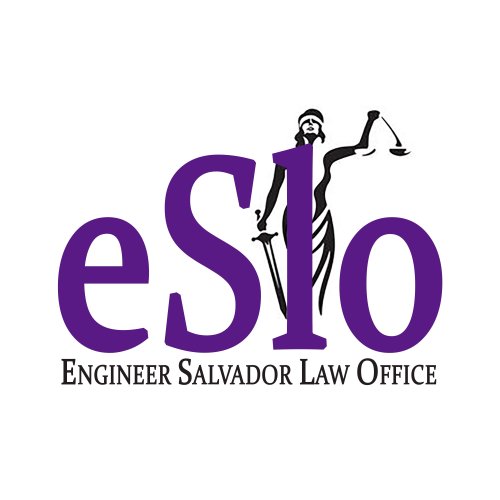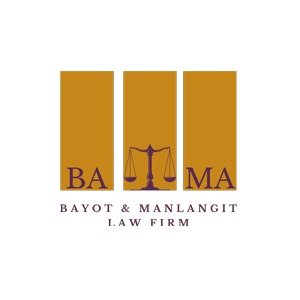Best Nonprofit & Charitable Organizations Lawyers in Cavite City
Share your needs with us, get contacted by law firms.
Free. Takes 2 min.
List of the best lawyers in Cavite City, Philippines
About Nonprofit & Charitable Organizations Law in Cavite City, Philippines
Nonprofit and charitable organizations in Cavite City play an essential role in addressing social, educational, and cultural needs. These organizations are generally formed to support public or philanthropic purposes and operate without the intention of making profits for distribution to members or stakeholders. They are governed by specific laws and regulations in the Philippines, including the registration process, tax-exempt status, reporting obligations, and compliance with both national and local laws. In Cavite City, like elsewhere in the Philippines, establishing and operating a nonprofit organization requires careful adherence to legal requirements to ensure both legal standing and effective operation.
Why You May Need a Lawyer
There are several common situations in which individuals or organizations might require legal assistance related to Nonprofit & Charitable Organizations in Cavite City:
- Formation and Registration: Legal counsel can assist in navigating the registration process with the Securities and Exchange Commission (SEC) and ensuring compliance with all necessary legal requirements.
- Tax Exemption and Compliance: Understanding the benefits and obligations of tax-exempt status requires specialized legal knowledge to maintain compliance and avoid penalties.
- Corporate Governance: Producing bylaws, policies, and aligning organizational practices with legal standards often necessitates professional legal advice.
- Dispute Resolution: Nonprofits may encounter internal disputes or conflicts with third parties, requiring legal intervention to mediate resolutions or represent the organization in court.
- Transaction Assistance: Legal advice is crucial when entering contracts or making significant transactions to protect the organization’s interests.
Local Laws Overview
The legal framework for nonprofit and charitable organizations in Cavite City involves both national and local stipulations, including:
- SEC Registration: Nonprofit organizations must register with the Securities and Exchange Commission to gain legal recognition and ability to operate legally.
- BIR Requirements: Obtaining a Tax Identification Number (TIN) and registering with the Bureau of Internal Revenue (BIR) for tax purposes and compliance is mandatory.
- Municipal Permits: Local government units (LGUs), including Cavite City, require specific permits or licenses to operate within their jurisdiction.
- Donation Compliance: Charitable organizations must adhere to regulations about soliciting and accepting donations, both from private and corporate donors.
Frequently Asked Questions
1. What are the steps to register a nonprofit organization in Cavite City?
To register a nonprofit, you need to secure articles of incorporation from the SEC, acquire a TIN from the BIR, and get necessary permits from Cavite City Hall.
2. How can a nonprofit organization gain tax-exempt status?
Applying to the BIR for tax-exempt status involves demonstrating that the organization serves public interest, among other requirements.
3. Are there annual reporting requirements for nonprofits?
Yes, nonprofits must submit regular financial reports to both the SEC and BIR to maintain compliance.
4. What types of legal structures are available for nonprofits in the Philippines?
The most common structure is a non-stock, non-profit corporation, which is suitable for charitable organizations.
5. Can nonprofits in Cavite City operate nationwide?
Yes, once registered, nonprofits can extend their operations across different LGUs, provided they comply with local regulations.
6. Is it mandatory for nonprofits to have a lawyer?
While not mandatory, legal advice is recommended to ensure compliance and proper legal structure.
7. How are board disputes typically resolved?
Disputes may be resolved through a mediator, by internal governance documents, or judicial intervention if necessary.
8. Can a nonprofit handle commercial activities?
Yes, but the proceeds must support the organization's charitable purposes, and proper accounting is essential.
9. What are the consequences of non-compliance with nonprofit laws?
Consequences range from losing tax-exempt status to financial penalties and even dissolution of the organization.
10. How can donors ensure their donations are used correctly?
Donors can request transparency from the nonprofit through regular reports and financial statements.
Additional Resources
Several resources are available for those seeking further assistance in Cavite City:
- Securities and Exchange Commission (SEC): Oversees the registration and regulation of nonprofit organizations.
- Bureau of Internal Revenue (BIR): Manages tax-exemption applications and compliance.
- Cavite City Hall: Local government unit that issues necessary permits and oversees local compliance.
- Nonprofit Organizations: Philippine Council for NGO Certification (PCNC) offers guidance on various operational practices.
Next Steps
If you are seeking legal assistance in the field of Nonprofit & Charitable Organizations, consider the following steps:
- Consult a Lawyer: Reach out to a specialized attorney to understand your specific legal needs and requirements for your nonprofit.
- Organizational Planning: Develop and review your organization's charter, bylaws, and policy documents with legal guidance.
- Compliance Checklist: Work with a lawyer to ensure all necessary documentation, permits, and registrations are up to date.
- Engage with Experts: Join networks of nonprofit professionals and seek mentorship or training from established organizations.
Lawzana helps you find the best lawyers and law firms in Cavite City through a curated and pre-screened list of qualified legal professionals. Our platform offers rankings and detailed profiles of attorneys and law firms, allowing you to compare based on practice areas, including Nonprofit & Charitable Organizations, experience, and client feedback.
Each profile includes a description of the firm's areas of practice, client reviews, team members and partners, year of establishment, spoken languages, office locations, contact information, social media presence, and any published articles or resources. Most firms on our platform speak English and are experienced in both local and international legal matters.
Get a quote from top-rated law firms in Cavite City, Philippines — quickly, securely, and without unnecessary hassle.
Disclaimer:
The information provided on this page is for general informational purposes only and does not constitute legal advice. While we strive to ensure the accuracy and relevance of the content, legal information may change over time, and interpretations of the law can vary. You should always consult with a qualified legal professional for advice specific to your situation.
We disclaim all liability for actions taken or not taken based on the content of this page. If you believe any information is incorrect or outdated, please contact us, and we will review and update it where appropriate.










